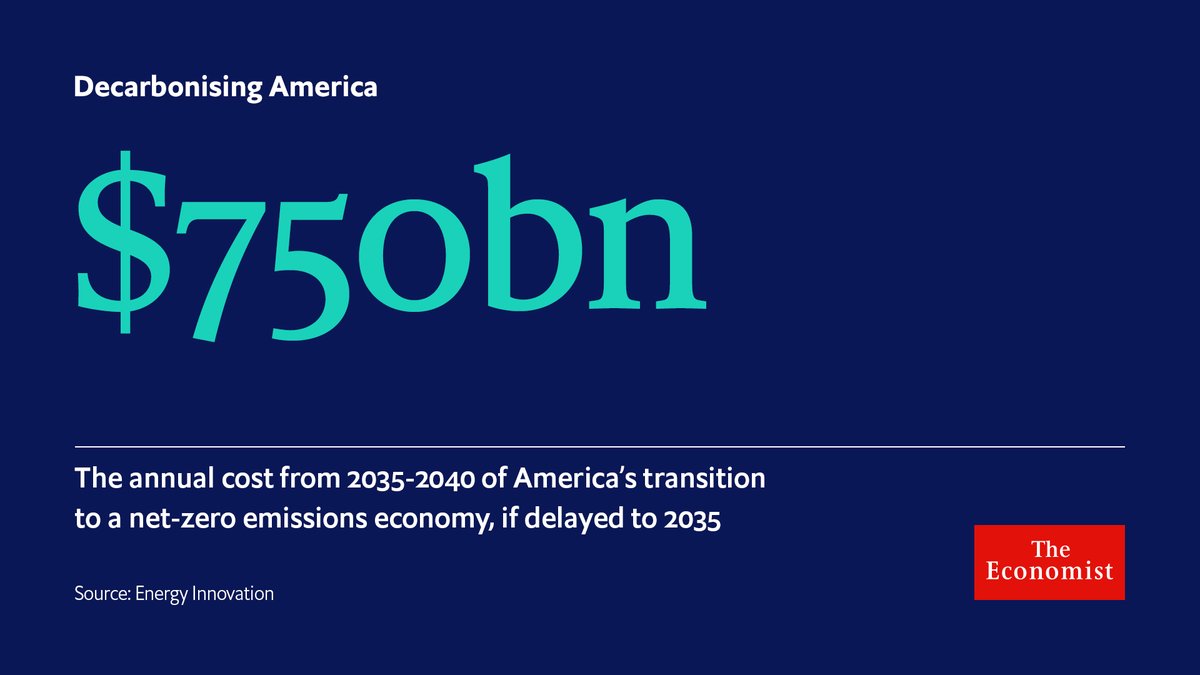
Plans to overhaul American energy will come before Congress in the next few months. What unfolds will set the course in America for the next decade—and quite possibly beyond. Thread 👇 econ.st/2ZSGk6N 

Last week America rejoined the Paris agreement. But as one of the world's largest emitters of greenhouse gases, it must do much more econ.st/3bvuGnr 

Joe Biden wants America's net greenhouse-gas emissions to reach zero by 2050 and the electricity sector to be emissions-free by 2035. Delaying action to 2030 would nearly double the cost of reaching these targets econ.st/3bvuGnr 

Delay would also make America less competitive in the new clean-energy economy and deprive it of global influence over the climate agenda. But the politics of greening America are never easy. What might the new president get done? econ.st/3pH9Yq0
Joe Biden has charged John Kerry with leading efforts on climate change abroad. He is the most senior politician to have been dedicated to climate diplomacy by any country, let alone a superpower like America econ.st/3dBb444 

But if he cannot point to progress at home, John Kerry’s job will be an unprofitable and thankless one. On our "Checks and Balance" podcast, he emphasises the importance of acting now econ.st/3dynh9P
There are grounds for hope. Over the past decade America’s electricity industry has become significantly less carbon-intensive despite meagre federal action. Truly clean energy has been on the rise too econ.st/3bvuGnr 

This progress is a mere prologue to what must come in the 2020s. To meet targets, research from Princeton University suggests that wind and solar capacity would need to expand each year through 2025 by about 40GW before hitting 70-75 GW a year in 2026-30 econ.st/3bvuGnr 

If those targets are met, the Princeton researchers reckon, by 2030 wind and solar farms could be providing about half of America’s electricity, up from 9% in 2019 econ.st/3bvuGnr
The expansion of transmission and renewables could transform America's landscape by 2050—but it comes with a big bill econ.st/3bvuGnr 

To date Congress has done little. But the Biden administration hopes to convince skeptics on Capitol Hill by arguing that decarbonisation will bring a surge in jobs econ.st/3bvuGnr 

American voters are increasingly alarmed by climate change. To overcome obstacles and make change happen, Joe Biden will need forceful leadership. Read why now is the moment for an ambitious attempt to deal with climate change econ.st/2ZSGk6N
• • •
Missing some Tweet in this thread? You can try to
force a refresh











